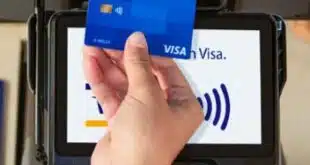Today's announcement by Wal-Mart Stores Inc. that the chain will begin accepting MasterCard International's signature-based debit card again, effective immediately, could spark more interest in non-bank debit networks among small and mid-size retailers, according to some expert observers. Although Wal-Mart and MasterCard refused to disclose terms of their agreement, it is widely assumed that MasterCard was forced to cut its signature-debit pricing in a deal tailored for Wal-Mart. “I would assume MasterCard gave up,” says Gwenn Bezard, an analyst at Celent Communications, New York, who follows the electronic-payments industry. “Wal-Mart has used its market power to strike a deal with MasterCard.” In December, the world's largest retailer said it would stop accepting MasterCard's signature-debit product Feb. 1 because of its pricing, an action the chain followed through on. Visa U.S.A. had reportedly cut a deal with Wal-Mart late last year for its signature-based debit card that was favorable to the retailer (Digital Transactions News, Dec. 3, 2003). MasterCard debit transactions represented a small fraction of Wal-Mart's overall sales volume, and the retailer reported earlier this year that its decision to stop acceptance of the card had caused few complaints among its customers. But the loss of acceptance at Wal-Mart may have mattered much more to the bank card network, notes Bezard, particularly at a time of major bank mergers when the networks are scrambling to win and retain brand preference among their largest issuers. There have been 210 bank mergers already so far in 2004, with the latest, Wachovia Corp.'s $14.3 billion agreement to purchase SouthTrust Corp., being announced today. “It's definitely not an asset when you're negotiating with the issuers that your card cannot be accepted at Wal-Mart,” says Bezard. But the pricing concessions MasterCard may have made to get back into Wal-Mart's good graces could create resentment among other merchants that lack the clout to negotiate similar deals and see themselves as subsidizing Wal-Mart and possibly other huge chains, Bezard says. At the same time, many observers expect interchange pricing set by the regional bank networks for debit transactions secured by personal identification numbers to rise as these bank networks struggle to retain issuers. These trends, says Bezard, could lead to increasing interest among retailers in PIN debit networks they either own or strongly influence. “I wouldn't be surprised if the discussion shifts from signature vs. PIN to bank-owned PIN debit vs. non-bank-owned PIN debit,” he predicts. One such non-bank PIN network, Debitman Card Inc., Chico, Calif., began operations last year and has recently restructured its pricing and shifted its emphasis to recruiting retailers to issue its card (Digital Transactions News, May 3). “Debitman might be in a good position to grow their volume significantly,” says Bezard. Wal-Mart's decision to drop the MasterCard debit card was the first known instance of a merchant taking advantage of the ability, newly won in a major class-action lawsuit by retailers against the bank card networks, to accept a network's credit cards but not its debit cards. Still, few others are known to have followed suit, and now with Wal-Mart's agreement to resume accepting MasterCard's debit product it seems less likely that the Visa and MasterCard debit products will sustain significant hits to volume any time soon, regardless of sentiment among smaller chains. “We forget merchants aren't in the business of accepting payment, they're in the business of selling products,” says Bezard.
Check Also
Same-Day ACH Volume Maintains Growth Pace
Same-day ACH transactions helped fuel a strong first quarter for the automated clearinghouse network. Nacha, …





